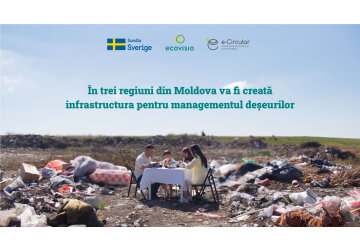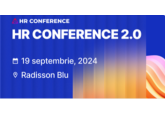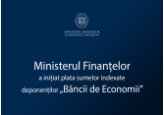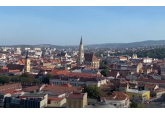
An integrated waste management system will be implemented in 3 regions of Moldova by 2028
This activity is planned under the “Moldova Solid Waste” project, which is being implemented with the financial support of EBRD and EIB. Environment Minister Sergiu Lazarencu said that the investments will be used to support the infrastructure of waste collection, transportation and processing in different regions of the country. In particular, the construction of landfills and transshipment stations is planned, and sustainable waste management will be promoted. This program is focused, among others, on the 5th waste management region (Ungheni, Nisporeni, Calarasi), 8th (Edineti, Briceni, Ocnita, Donduseni) and 1st (Cahul, Cantemir, Taraclia, Comrat, Vulcanesti, Ceadir-Lunga). The program activities in these regions are provided by the NGOs EcoVisio and E-Circular in partnership with the Ministry of Environment and the National Office for the Implementation of Environmental Projects and with financial support from Sweden. According to the project representatives, waste management in Moldova remains a serious problem and one of the reasons is the low awareness and involvement of the population in the processes of prevention, reuse and composting of organic waste. Regions 5, 8 and 1 are home to about 690 thousand people, whose health is directly affected by more than 300 landfills with a total area of 375 hectares (506 soccer fields). According to the project manager Vica Diavor, the solution to the problem of waste volumes is to prevent waste generation, and the work is aimed at prevention, reuse, recycling, utilization and, only if it is impossible to pass the previous stages, landfilling. Another problem is the poor infrastructure for sorting and selective collection, especially in rural areas where only 15-20% use sanitation services. At the same time, the volume of waste generated is constantly increasing and amounts to 400 kg per year per 1 inhabitant of Moldova. In Chisinau municipality about 90% of the waste collected by sanitation services was disposed by storage, while selective collection is partially organized in the capital and in some district centers. Thus, the recycling and waste utilization rates are still very low. Many recyclable and useful materials are stored together with non-recyclable materials, losing most of their useful potential (paper, glass, metals, and plastics). The organizations also note that there is a need to raise public awareness of the importance of proper waste reduction and management. The project will provide information that is accessible and useful to people, with an emphasis on reducing, reusing and preventing litter. In addition, citizens will be encouraged to actively participate in waste management - through volunteer programs or supporting environmental initiatives. // 20.09.2024 - InfoMarket







